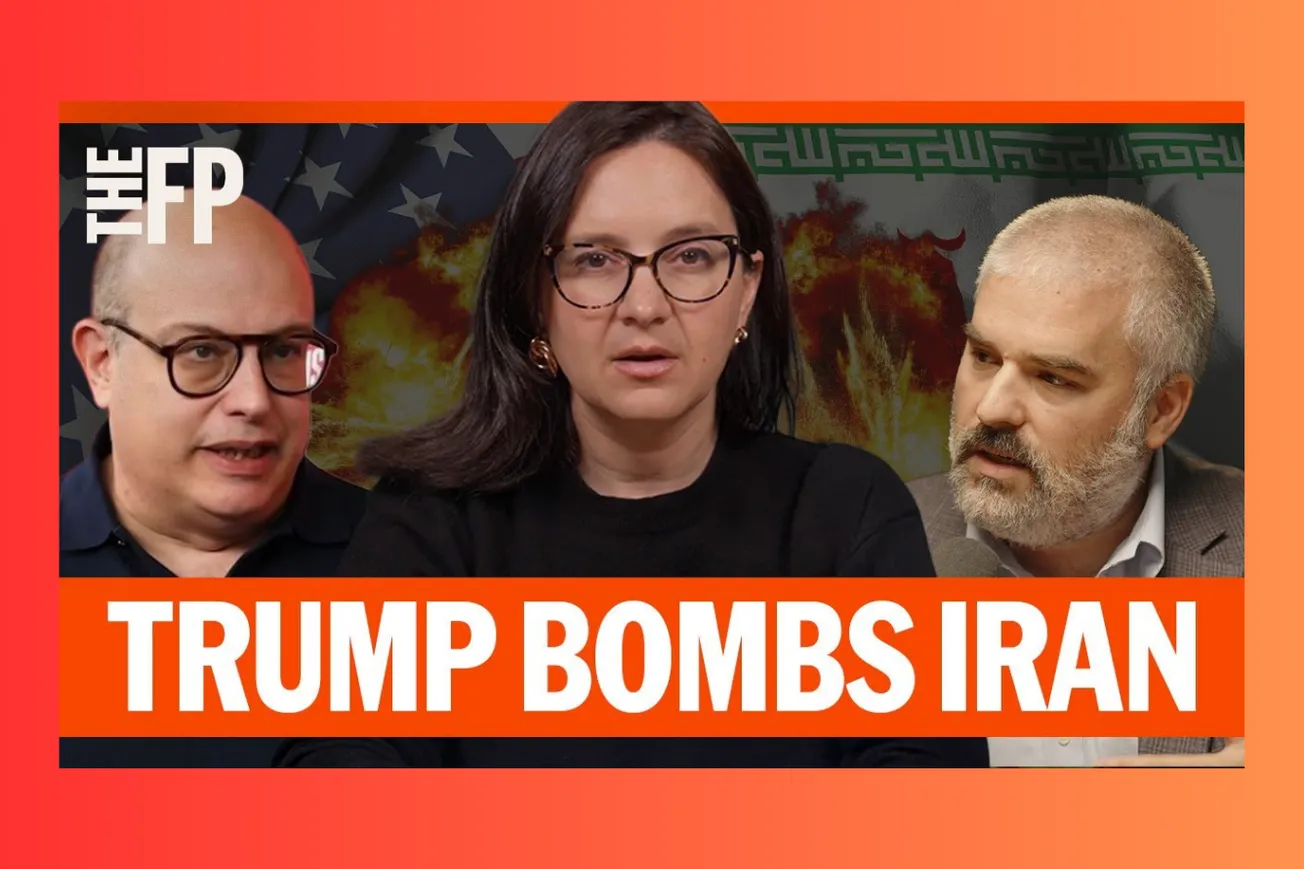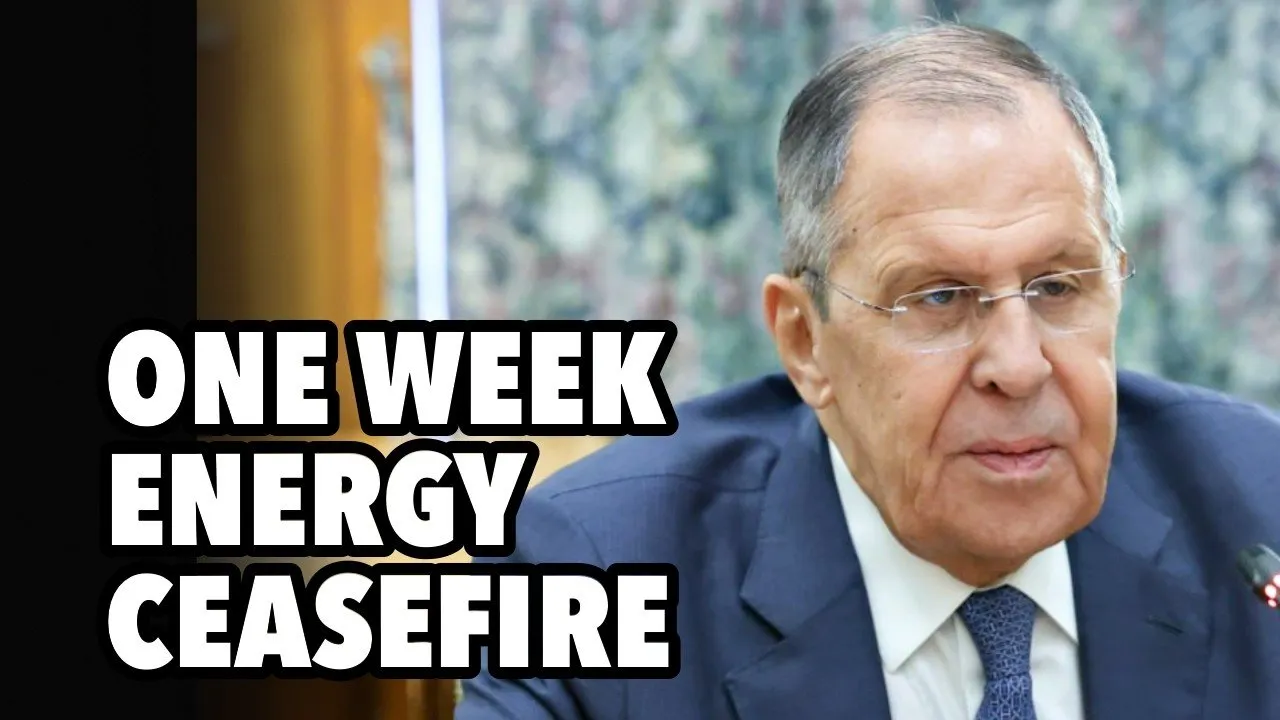Table of Contents
In an unprecedented display of American resolve, Trump bombed Iran's nuclear infrastructure in coordination with Israel, fundamentally altering regional dynamics and demonstrating the limits of Iranian power.
Key Takeaways
- US B-2 bombers dropped massive ordnance penetrators on Iran's three most critical nuclear facilities including the previously impenetrable Fordo underground complex
- This represents the first direct American military action against Iran's nuclear program in history, coordinated seamlessly with Israeli operations
- Trump overruled fierce opposition from restrainer factions including Tulsi Gabbard, Steve Bannon, and Tucker Carlson who predicted catastrophic escalation
- The strikes potentially destroyed years of Iranian nuclear development including advanced centrifuges, enrichment facilities, and weapons-grade uranium stockpiles
- Iran now faces an existential choice between complete nuclear capitulation or regime-threatening escalation against American forces
- The operation establishes a revolutionary US-Israel security partnership model that could reshape global alliance structures
- Regional powers including Saudi Arabia and Egypt publicly condemned Israel while privately positioning to avoid Iranian retaliation
- Iranian military capabilities proved far weaker than decades of rhetoric suggested, with centralized command structures creating critical vulnerabilities
- The nuclear program's destruction removes Iran's primary strategic leverage after investing an estimated half-trillion dollars over decades
The Strategic Genius Behind an Impossible Mission
The coordinated US-Israel destruction of Iran's nuclear infrastructure represents perhaps the most sophisticated military operation in Middle Eastern history. What makes this achievement extraordinary is not just its tactical success, but how it solved an seemingly impossible strategic puzzle that had confounded four consecutive American presidents.
Mike Doran, senior fellow at Hudson Institute calling from Turkey at 4 AM, explained the fundamental problem: "The Israelis had made clear that they had to destroy Fordo, and you cannot destroy the Iranian nuclear program without destroying Fordo. That's the underground bunker where they have the advanced centrifuges and stockpiles of enriched uranium. If that facility remains intact, Iran still has the capability to make a bomb."
The Fordo facility posed unique challenges that exposed the limits of even Israel's formidable military capabilities. Buried deep under a mountain on a Revolutionary Guard base, it required precision strikes with massive ordnance penetrators that only American B-2 bombers can deliver. No other military in the world possesses both the aircraft and the 30,000-pound bunker-busting weapons necessary for this mission.
Mark Dubowitz from Foundation for Defense of Democracies detailed the comprehensive targeting: "The US Air Force dropped bombs on three major sites. Fordo enrichment facility buried deep under a mountain contained advanced centrifuges capable of weaponizing uranium. At Natanz, there's both the facility the Israelis destroyed but also Pickax Mountain - a facility the Iranians have been burrowing into that would have been even deeper than Fordo. At Isfahan, deeply buried under tunnels we think are the enriched material - enriched uranium for about 17-19 bombs worth."
The operation's brilliance lay in its completeness. Rather than symbolic strikes, Trump authorized the systematic destruction of Iran's entire nuclear weapons development capability. Advanced centrifuges that took years to develop and install were obliterated. Enrichment facilities painstakingly constructed over decades were collapsed. Most critically, the underground storage of weapons-grade uranium - Iran's insurance policy for rapid bomb development - was potentially rendered inaccessible through tunnel collapse.
Trump's Calculated Defiance of the Restrainer Rebellion
Perhaps more remarkable than the military achievement was Trump's willingness to execute this operation despite unprecedented opposition from within his own political coalition. The "restrainer" wing of MAGA, led by figures like Steve Bannon, Tucker Carlson, and surprisingly, Director of National Intelligence Tulsi Gabbard, had mounted an intensive lobbying campaign to prevent American involvement.
Matt Continetti from American Enterprise Institute observed the president's isolation: "If there hadn't been any disagreement, we probably wouldn't have seen that video from Tulsi Gabbard warning about the dangers of nuclear war - a video that according to reporting seriously angered the president and may explain why he has now said on two occasions that he doesn't care what Tulsi Gabbard says."
The restrainer coalition's arguments followed predictable patterns from previous Middle Eastern interventions. They warned of World War III, predicted BRICS nations would rally to Iran's defense, and estimated massive casualty counts. Rand Paul publicly claimed 100,000 people would die. Tucker Carlson promoted conspiracy theories that Netanyahu was manipulating Trump with false intelligence about Iranian assassination attempts.
Steve Bannon's reaction proved particularly telling. Mike Doran recounted: "I don't know if you saw that video today where Steve Bannon was screaming at Netanyahu saying, 'How dare you lecture the American people? The American people are not going to stand for it.' As if Steve Bannon is somehow a representative of the American people. He doesn't represent the American people. Donald Trump represents the American people."
The president's misdirection campaign proved masterful. His public "two weeks" timeline and diplomatic gestures masked intensive operational planning. Turkish mediation attempts provided cover while final preparations proceeded. When Iranian President Pezeshkian reportedly agreed to meet Trump but refused no-enrichment conditions, the diplomatic track's failure legitimized military action.
Eli Lake captured the broader significance: "There was that meme about Trump always chickens out. I don't think we're going to talk about Trump always chickens out anymore. This is a huge decision that he made over pretty open rebellion within the party."
Iran's Paper Tiger Military Exposed
The strikes revealed fundamental weaknesses in Iranian military capabilities that decades of propaganda had obscured. Despite controlling 10% of global oil reserves and spending an estimated half-trillion dollars on their nuclear program, Iran's actual defensive capabilities proved remarkably inadequate.
Haviv Rettig Gur, calling from Jerusalem at 3:45 AM, delivered a devastating assessment: "This is a regime that sits on 10% of the world's oil reserves and manages to keep its country desperately poor through ideological extremism, mismanagement and oppression. They just miscalculated everything and everybody. They failed to build out any serious capabilities within a comprehensive military framework."
Iran's asymmetric warfare doctrine, based on drones, ballistic missiles, and cruise missiles, proved insufficient against sustained, coordinated pressure. While these weapons could overwhelm defenses in isolated attacks, they couldn't defend against systematic dismantlement by technologically superior forces operating with intelligence dominance.
The regime's centralized command structure, designed to ensure absolute loyalty, became a critical vulnerability. Israel's systematic elimination of IRGC leadership, including Quds Force commanders responsible for October 7th planning, degraded operational effectiveness across Iran's entire proxy network. As Gur noted: "When you take out the leadership, it becomes dysfunctional. Trump took out Soleimani; they never really recovered. They were never as competent when Soleimani was gone."
Iran's ballistic missile arsenal, while substantial on paper, faced severe practical limitations. Israeli air campaigns systematically targeted launchers, reducing firing rates despite large stockpiles. Their missiles could only launch in limited numbers, and every launch site faced immediate Israeli retaliation. The much-vaunted arsenal became increasingly ineffective as the war progressed.
Most tellingly, Iran's air force remains virtually non-existent for modern warfare. Some aircraft date to the Vietnam era. They possess no meaningful air defense against advanced stealth bombers. Their navy, while capable of harassing commercial shipping, cannot project power beyond regional chokepoints.
The Revolutionary US-Israel Security Partnership
Tonight's operation established an entirely new model for American global engagement that addresses longstanding strategic dilemmas. Rather than maintaining massive forward deployments, the United States can now leverage advanced technological capabilities through capable regional partners who handle tactical operations.
Haviv Rettig Gur identified the broader implications: "One other thing that was just reshaped by President Trump was how the US is going to secure the world after it no longer wants to literally have hundreds of thousands of soldiers scattered all over the world. The answer seems to be this kind of relationship built out with the Israelis where the local ally does the heavy lifting because it's their interest and America delivers the strategic capabilities."
This partnership model offers compelling advantages. Regional allies possess superior local intelligence, cultural understanding, and immediate stakes in outcomes. They can sustain operations over extended periods without domestic political backlash. Meanwhile, America retains decisive technological advantages - advanced aircraft, precision weapons, satellite intelligence - that remain crucial for existential threats.
The precedent extends far beyond the Middle East. Similar relationships already exist with Australia in the Pacific. European allies could assume greater responsibility for their security while accessing American capabilities for threats like Russian nuclear weapons. The model could prove particularly valuable in confronting China, where regional partners like Japan, South Korea, and Taiwan possess extensive local capabilities but need American technological force multipliers.
Mike Doran emphasized the historical significance: "The United States and Israel went to war together against a common enemy - that's new. It's entirely new. In the Gulf War, the United States did everything it could to keep Israel out because it thought working with Israelis would tarnish itself in the eyes of the whole Middle East. We now have a president who thinks that working together with Israel enhances American power among Muslim allies."
Regional Realignment and the New Middle East
The strikes accelerated dramatic regional shifts that had been building since October 7th but remained largely hidden beneath diplomatic niceties. Tonight's events forced Arab governments to choose sides more explicitly than ever before.
Saudi Arabia and Egypt issued pro-forma condemnations of Israeli attacks while simultaneously positioning to avoid Iranian retaliation. These calculated responses signal their true preferences: reducing Iranian influence while maintaining plausible deniability. As Gur observed: "The Saudis and Egyptians came out angrily against the Israeli attack on Iran, and all those are signals that they expect an attack on Iran and don't want to be part of Iran's response."
The Gulf states face particularly stark calculations. Iranian missiles threaten their oil infrastructure, which forms the backbone of their economies. Iranian proxies destabilize their neighbors. Iranian nuclear weapons would create an existential threat to monarchies that Iran's revolutionary ideology explicitly rejects. Despite public rhetoric about Palestinian solidarity, these regimes prioritize their survival over ideological consistency.
Israel's systematic destruction of Iranian proxies - Hamas decimated, Hezbollah leadership eliminated, Houthis weakened - demonstrated that Iranian protection offers little value while Iranian enmity carries enormous costs. Regional powers increasingly see alignment with American-Israeli capabilities as offering superior security returns.
Amit Segal from N12 described this as "the most dramatic diplomatic achievement in Israel's history since the establishment of the country" because it represents American willingness to fully coordinate military operations rather than merely provide diplomatic cover or weapons supplies.
The energy implications remain crucial. Unknown actors bombed Iranian naval facilities at Bandar Abbas, which controls access to the Strait of Hormuz through which roughly 50% of global oil shipments pass. This preemptive action suggests broad international coordination to prevent Iranian retaliation through energy blackmail.
The Restrainer Coalition's Intellectual Collapse
Trump's successful operation devastated the credibility of non-interventionist voices who had predicted catastrophic escalation. Their warnings about World War III, BRICS involvement, Chinese intervention, and massive casualties proved entirely unfounded.
The restrainer argument rested on several flawed premises. They assumed Iranian capabilities matched Iranian rhetoric. They believed regional powers would rally to Iran's defense despite decades of Iranian destabilization. They predicted Russian and Chinese military intervention despite those powers' clear priorities elsewhere. Most fundamentally, they misunderstood American technological advantages and operational capabilities.
Eli Lake noted the broader implications: "The Tucker Carlson restrainer wing has to be very careful. They predicted World War III. There were people who said the BRICS countries were going to join in and defend Iran. Rand Paul went on television and said 100,000 people were going to die. Everything that they said did not come true, and suddenly they look like they're going to be considered Cassandras for a generation."
The coalition now faces internal fractures. Some figures like Charlie Kirk expressed support for Trump's decision once it proved successful. Others maintain opposition based on constitutional concerns about congressional authorization. Most troublingly, some revealed underlying antisemitic motivations by promoting conspiracy theories about Israeli manipulation rather than acknowledging genuine Iranian threats.
Tucker Carlson's claim that Netanyahu provided false intelligence about Iranian assassination attempts proved particularly damaging given the existence of unsealed federal indictments and imprisoned Iranian agents. Such conspiracy theories expose how foreign policy debates sometimes mask deeper ideological commitments.
The restrainers' fundamental error lay in treating foreign policy as a projection of domestic political preferences rather than a response to external realities. Their positions reflected opposition to American global engagement regardless of specific circumstances or threats.
Iran's Existential Calculations and Strategic Dead Ends
Iran now confronts the most severe crisis in the Islamic Republic's 46-year history. The nuclear program's destruction eliminates their primary strategic asset and negotiating leverage. Their proxy network lies in ruins. Their conventional military capabilities have been exposed as inadequate. Most critically, they face an American president willing to use overwhelming force.
The regime's traditional tactics no longer function. Delay and obfuscation worked against previous administrations that prioritized negotiations over results. Threatening American allies could previously deter intervention, but now risks triggering devastating retaliation. Nuclear brinksmanship becomes impossible without nuclear infrastructure.
Trump's post-strike address offered a stark ultimatum: "Iran, the bully of the Middle East, must now make peace. If they do not, future attacks will be far greater and a lot easier. Remember, there are many targets left. Tonight's was the most difficult of them all by far and perhaps the most lethal. Most of them can be taken out in a matter of minutes."
Iranian leaders understand the credibility behind these threats. Trump previously demonstrated willingness to eliminate senior Iranian officials by killing Qasem Soleimani. Tonight's operation required far more complex planning and coordination than a targeted assassination. If Trump can destroy Iran's most protected nuclear facilities, he can certainly eliminate regime leadership or economic infrastructure.
The regime faces three basic options, none attractive. Complete capitulation means abandoning nuclear ambitions, accepting international oversight, and potentially dismantling remaining weapons programs. Limited retaliation against Israeli or American targets risks triggering regime-ending escalation. Attempting to rebuild nuclear capabilities faces ongoing surveillance and preemptive strikes.
Mark Dubowitz captured the historical parallel: "The question for Khamenei is, will he drink the poison chalice? Khamenei was actually the man who went to Khomeini in the 1980s after eight years of war and said you must drink the poison chalice and end the war. Is he finally realizing with American military intervention that he's not just risking his nuclear weapons program, he's risking his regime?"
Implications for Iranian Society and Regional Stability
The regime's weakness creates both opportunities and dangers for Iranian society. Previous uprisings in 2009, 2017, 2019, and 2022 were brutally suppressed by security forces whose loyalty the regime could count on. Tonight's events potentially alter those calculations.
Haviv Rettig Gur warned of the regime's likely response to its diminished position: "What this regime is, it will no longer be able to sell anybody on the redemptionist Islamic idea that there's some kind of Islamic resurgence coming. Whatever survives will be pettier, more pathetic, more violent potentially domestically because it will be only a dictatorship with none of these justifications."
Mark Dubowitz detailed the regime's internal vulnerabilities: "We've been monitoring regime insiders who are now thinking, is this what I've committed to? The support base, the 20%, are watching regime officials hightailing out of dodge, taking flights to Turkey and Russia, moving their kids, moving their money. IRGC units were walking off the job. That was before Donald Trump dropped bombs on Iran's nuclear facilities."
The regime's support structure depends on a combination of ideological commitment, material benefits, and fear of alternatives. Tonight's events undermine all three pillars. The ideological narrative of inevitable victory lies in ruins. Material benefits become harder to provide as economic pressure intensifies. Fear of alternatives diminishes as the regime appears increasingly vulnerable.
However, regime collapse could create new dangers. Iran's ethnic diversity - only 50% Persian, with significant Azeri, Baloch, Kurdish, and Arab populations - raises possibilities of fragmentation. Weapons stockpiles could fall into various hands. Regional power vacuums might invite intervention from multiple directions.
The optimal outcome requires supporting Iranian democratic opposition while maintaining enough regime functionality to prevent total collapse. This demands sophisticated policies that strengthen civil society without triggering immediate crackdowns or chaos.
Global Implications and the Future of American Power
Tonight's operation demonstrates how American technological superiority can be leveraged through capable allies to address threats without massive direct intervention. This model offers solutions to longstanding dilemmas about American global engagement in an era of domestic skepticism about foreign commitments.
The precedent has immediate relevance for other challenges. China's growing assertiveness in the Pacific, Russian threats to European security, and emerging nuclear proliferation risks all require responses that balance American capabilities with allied responsibilities. Tonight's US-Israel coordination provides a template for such partnerships.
Eli Lake noted the diplomatic implications: "The resolve that Trump just showed is a message to the Chinese when it comes to Taiwan. It's a message to every rogue state that's thinking about following in the footsteps of North Korea or Iran. It strengthens American diplomacy for years to come because what we were doing was always entering negotiations with Iran where the worst thing we were going to do was more sanctions."
Nuclear proliferation dynamics could shift dramatically. States considering nuclear weapons programs must now factor in the possibility of preemptive destruction by American-allied coalitions. The previous assumption that nuclear infrastructure could be developed safely below the threshold of major power intervention no longer holds.
Regional allies gain new confidence in American security guarantees while accepting greater responsibility for their own defense. This rebalancing serves American interests by reducing direct exposure while maintaining decisive influence over critical outcomes.
The operation also demonstrates the continued relevance of advanced military technology and professional armed forces in an era when some analysts predicted the dominance of asymmetric warfare, cyber operations, and economic coercion.
The Historic Stakes and Lasting Consequences
Mike Doran placed tonight's events in historical perspective: "This is very significant. Trump has outlined a new security architecture not just for the Middle East where the US devolves more responsibility onto its allies. This will be replicated in Europe and East Asia. He's laid out a new framework for the rest of the world and changed the balance of power in domestic politics with these restrainers."
The operation's success validates Trump's long-standing position that Iran could not be permitted to acquire nuclear weapons. Unlike previous presidents who made similar statements without following through, Trump demonstrated the credibility that gives diplomatic threats meaning.
For Israel, the coordination represents unprecedented American support that goes far beyond weapons supplies or diplomatic cover to include direct military participation in existential threats. This partnership model could prove crucial for addressing future challenges as regional threats evolve.
For Iran, the nuclear program's destruction removes the strategic achievement that justified decades of international isolation, economic hardship, and domestic repression. The regime must now find new sources of legitimacy and power in a fundamentally altered strategic environment.
The broader Middle East faces the prospect of reduced Iranian influence for the first time in decades. Proxy conflicts in Yemen, Syria, Lebanon, and Gaza lose their primary external support. Regional powers can pursue more independent policies without Iranian intimidation.
Most significantly, the international community witnesses a demonstration that nuclear proliferation is not inevitable and that determined action by capable coalitions can reverse even advanced weapons programs. This precedent may prove crucial for preventing future proliferation crises.
Common Questions
Q: Does this completely eliminate Iran's nuclear weapons capability?
A: Major facilities have been destroyed and the program severely damaged, but Iran retains some capabilities and enriched materials requiring continued monitoring and potential additional action.
Q: How likely is Iranian retaliation against American forces or allies?
A: Retaliation risks massive US escalation that could topple the regime, making it extremely dangerous for Iranian leadership to pursue beyond symbolic responses.
Q: What does this mean for oil prices and global energy markets?
A: Preemptive strikes on Iranian naval facilities suggest coordination to prevent energy blackmail, though markets may still react to uncertainty about Iranian responses.
Q: Will this lead to regime change in Iran?
A: While not explicitly pursuing regime change, the operation creates conditions where regime survival depends on fundamental policy changes regarding nuclear weapons and regional behavior.
Q: How does this affect US relationships with European allies?
A: European governments have generally supported preventing Iranian nuclear weapons while maintaining diplomatic channels, suggesting broad approval despite tactical disagreements.
Q: What happens if Iran attempts to rebuild its nuclear program?
A: Trump indicated numerous additional targets remain available for rapid destruction, making reconstruction attempts extremely risky for the Iranian regime.
Q: Could this operation be replicated against other nuclear proliferation threats?
A: The precedent demonstrates that advanced nuclear programs can be destroyed through coordinated action, potentially deterring other proliferation attempts while providing a model for future interventions.
Trump's decisive action marks a historic inflection point that fundamentally alters Middle Eastern power dynamics and establishes new precedents for addressing nuclear proliferation. The success of this unprecedented US-Israel coordination reshapes possibilities for American global engagement while placing Iran's survival in the hands of leaders who must now choose between nuclear ambitions and regime preservation.





